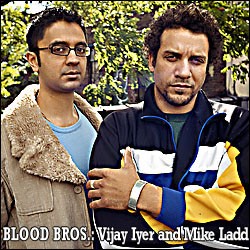Anyone who thinks that lyrics and poetry are interchangeable hasn't spent enough time reading the former aloud or trying to sing the latter. Clipped of their melodies, good (and great) lyrics can be as ungainly as grounded birds. And poems often have their own internal musics that resist the contours of a truly singable melody. For instance, how do you wrap a tune easily around "The not-happening was so sudden/that I stayed there forever" and keep a flow through "without knowing, without their knowing me/as if I were under a chair ..."? And that's just the beginning of one poem.
But Luciana Souza rises to the occasion more often than not in her tribute to the late Pablo Neruda in the centennial of the Nobel Prize winner's birth. She takes the liberty of nipping an uncooperative word here and, over there, turning a key line into a refrain, a small concession in a stunning act. It's as if these words – or at least these English translations of the Spanish originals – have been sleeping and waiting to wake up as sung here – intimate and dreamy in Souza's bell-clear voice and judicious vibrato – to the accompaniment of pianist Edward Simon and/or Souza's own percussion.
Brazilian by birth and heritage and New Yorker by residence, Souza has made stunning recordings of Tin Pan Alley standards and classic sambas, penned memorable originals, and proved she could pull off this kind of poem-to-song shift with The Poems of Elizabeth Bishop and Other Songs. But that 2000 record seems only a warm-up to the ten Neruda poems that send a listener away humming, for instance, "violins will have the fragrance of the moon" from "Sonnet 99," perhaps the most perfect selection here. (The weakest is her "We Are Many," which doesn't quite capture Neruda's humor in the second half and totally misses it in the first.)
Neruda was many things in the half-century of poetry-writing that ended with his death in 1973; a bilingual edition of selected poems published last year ran 1,040 pages, and in giving focus for this recording, Souza has created songs of love, longing, loss and loneliness; there are Neruda's takes on nature, the nature of poetry and the nature of the psyche. But omitted is Neruda's embrace of history and his people; neither is there a hint of the political Neruda, whose art and activities led the United States to bar his entry and the Soviets to give him the Stalin Peace Prize.
Politics, in contrast, is never far from the surface in the poems Mike Ladd brings to his recent CD with pianist-composer Vijay Iyer. But rather than being transmuted into songs, these are poems with musical backing, their delivery influenced by rap and slam and their poetry-with-music antecedents.
Ladd's theme is globalism as seen by "brown-skinned travelers" negotiating airports; the work becomes "a series of views on history and human migration" as the artists put it. A Yemeni woman laments her mother being strip-searched. A woman from St. Thomas dreams of families "shipped through this sky." An Iraqi businessman imagines a surrealistic beating at the hands of "the boss." An immigrant Indian cabbie plays tabla on his wheel.
Ladd and three other performers are character-speakers in these poems that shift between vernacular and the abstract. Meanwhile Iyer augments his piano playing with a full rhythm section, electronics, horns and guitar. The music draws on early Philip Glass-style minimalism, jazz, rock, balladry and bhangra in a mix as urgent as the words being underscored.


